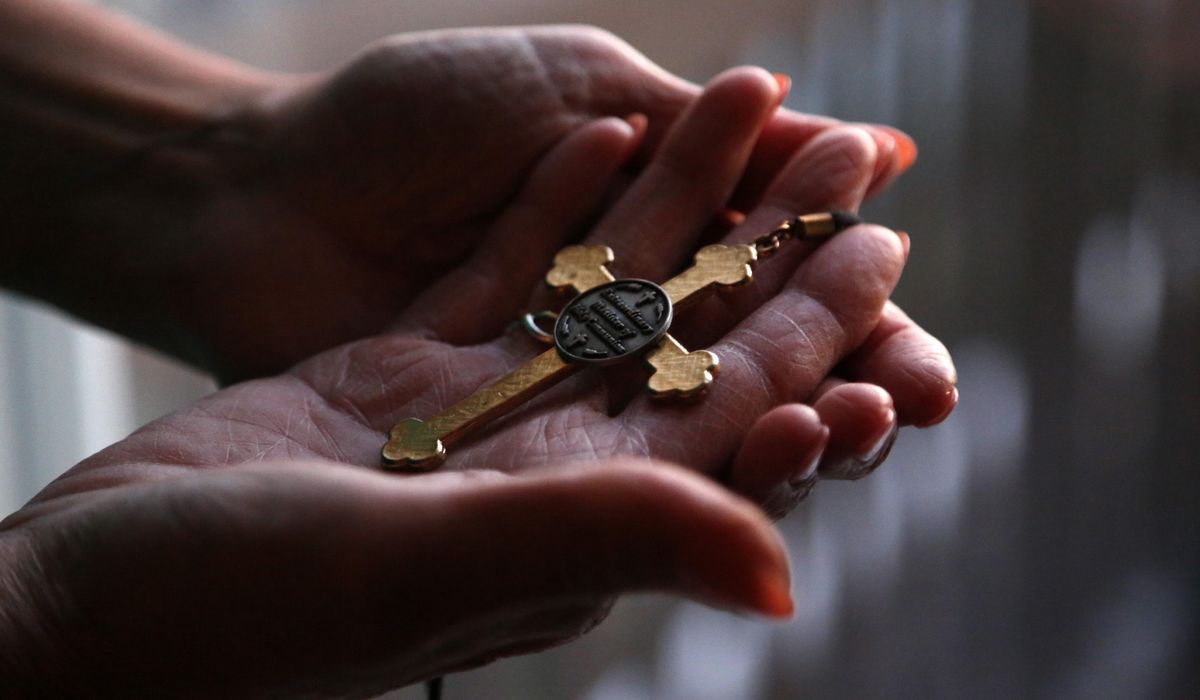


Catholic hospitals are on track to begin banning gender-transition surgery and other medical procedures for transgender people after the U.S. Conference of Catholic Bishops unanimously voted to revise the church’s health care guidelines.
The bishops voted at their spring assembly in Orlando, Florida, to begin revising the church’s “Ethical and Religious Directives,” or ERDs, documents that affect a broad swath of American healthcare.
Archbishop Paul D. Etienne of Seattle noted “over 600 Catholic hospitals” in the United States serve “one in seven” healthcare patients every day.
The ERD section on “professional/patient relationship” hasn’t been changed since 1994, said Bishop Daniel Flores of Brownsville, Texas, chair of the doctrinal committee tasked with drafting the document.
“At that time, it was not envisioned that it might be necessary to include specific guidance concerning radical modifications of the human body, such as are widely advocated in practice today for the treatment of those suffering from gender dysphoria,” Bishop Flores said.
The U.S. Conference of Catholic Bishops did not immediately respond to a request for comment.
But the bishops conference’s doctrinal committee in March released a “Doctrinal Note on the Moral Limits to Technological Manipulation of the Human Body” that stated “there is an order in human nature that we are called to respect,” adding later that “neither patients nor physicians nor researchers nor any other persons have unlimited rights over the body.”
Bishop Michael F. Olson of the Diocese of Fort Worth, Texas, urged the doctrinal committee to differentiate between those with an actual medical condition and those embracing an “ideology” of gender.
“There is still a lack of clarity between what is authentic gender dysphoria, and then also the gender ideology that, in part, is preying upon these people and enhancing their suffering, increasing their suffering,” he said.
Bishop Olson said he hopes the development process for a new ERD will allow bishops to “write a broader pastoral document” after the process concludes.
“It should,” replied Archbishop Timothy J. Broglio, USCCB President and Archbishop for the Military Services.
Several Catholic leaders, including Archbishop Etienne, San Diego’s Cardinal Robert McElroy and Cardinal Joseph Tobin of Newark, New Jersey, urged the doctrinal committee to seek input from physicians and transgender individuals as they draft the document.
“I would like to also encourage our broad consultation including people whose are from the trans community. … We, in fulfilling our teaching office, should listen as well and be able to present things in a language that they’ll understand. Perhaps not agree with, but they’ll understand,” Cardinal Tobin said.
Bishop Flores responded: “We all agree in the tradition of the ERD [it] should be pastorally sensitive to the medical realities that are faced by people.”
Such promised sensitivity was not received by Catholics for Choice, a lay group organized to support abortion, another procedure the bishops — and Catholic doctrine — oppose.
“Transgender people are a reflection of the extraordinary complexity and variety that God has made in every aspect of nature and throughout our universe, and their gender expressions and spirits are a testimony to God’s boundless creativity. The falsely binary God portrayed by the nation’s Catholic bishops is so small and so limited by comparison,” Jamie L. Manson, the group’s president, said in a statement.
The prospect of such opposition may have led Archbishop Broglio to say to Bishop Flores, “You’ve got your work cut out” after the vote approving the ERD process.
• Mark A. Kellner can be reached at mkellner@washingtontimes.com.
